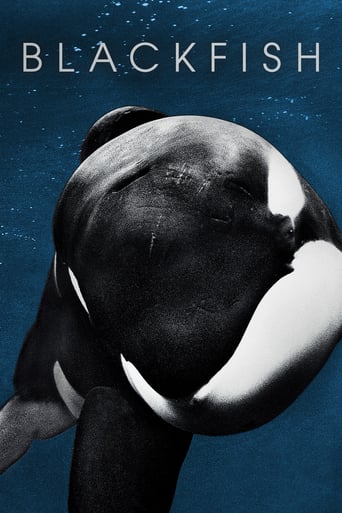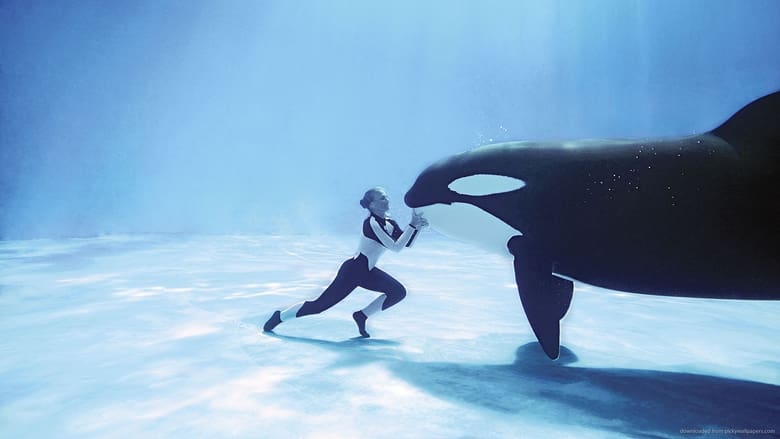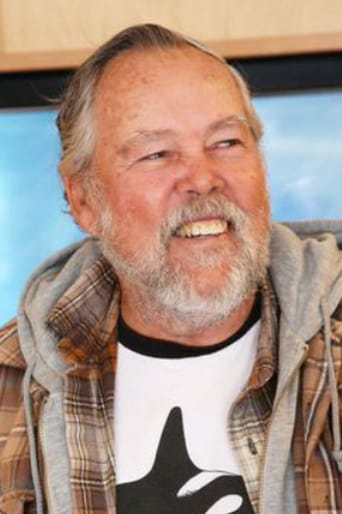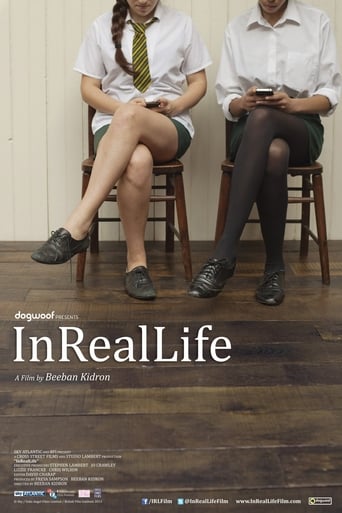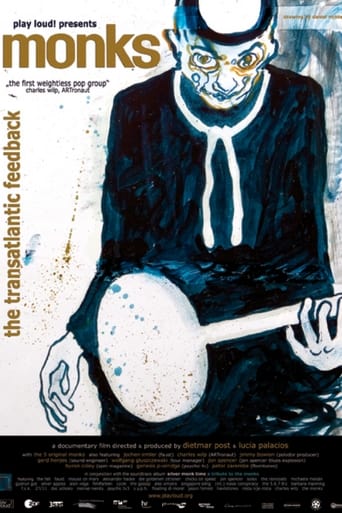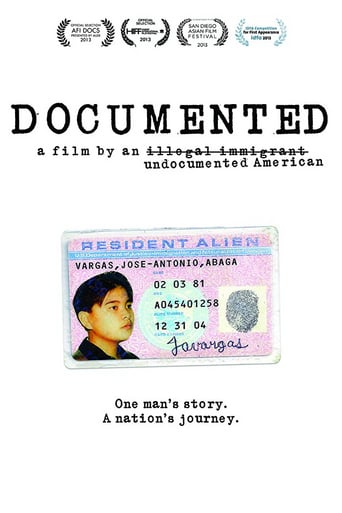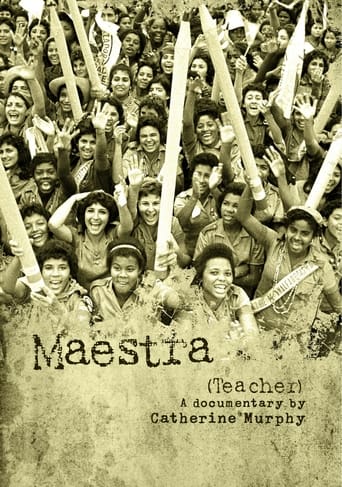Blackfish (2013)
Notorious killer whale Tilikum is responsible for the deaths of three individuals, including a top killer whale trainer. Blackfish shows the sometimes devastating consequences of keeping such intelligent and sentient creatures in captivity.
Watch Trailer
Cast


Similar titles
Reviews
Please don't spend money on this.
If the ambition is to provide two hours of instantly forgettable, popcorn-munching escapism, it succeeds.
There are moments that feel comical, some horrific, and some downright inspiring but the tonal shifts hardly matter as the end results come to a film that's perfect for this time.
A terrific literary drama and character piece that shows how the process of creating art can be seen differently by those doing it and those looking at it from the outside.
Orcas, captured in the wild off Puget Sound and Iceland, are sold into captivity to be displayed at theme parks; one such killer whale, named Tilikum, is bought by SeaWorld from the closing Sealand of the Pacific in British Columbia, mainly for breeding purposes--following a horrific incident wherein Tilikum killed a trainer during a performance. Director Gabriela Cowperthwaite's scathing indictment of SeaWorld and its unconscionable practices shows clearly the inhumane treatment Orcas endure just to be displayed for show, and the footage of aggressive behavior by killer whales towards unprotected, sometimes uneducated eager young trainers is horrifying. The film is enlightening not only as a cautionary tale, but also as a document of how greed blinds corporations from doing the right thing. Heartbreaking and hard to watch, though edited at times with manipulative fervor--to get an extra rise out of the viewer. Nevertheless, essential viewing. **1/2 from ****
Never have I seen a documentary on nature and animals that has made me cry. This was the first one. It is horrifying to see how badly we as man have treated our relations who live on this planet with us. To know that young Orca whales are herded like cattle into traps and torn away from their crying, begging mothers. It is also infuriating that Sea World would use such petty arguments in the following court cases to make themselves not seem at fault. This documentary sheds some much needed light on the illegal, unethical, and sickening practices of whale catchers, and Sea World themselves. I do not feel that such enormous, agile creatures should have to live in any type of enclosure. They were born of mother Ocean, and that is where they should be free to live their lives. These Orcas will suffer physical and psychological abuse from each other, and from the management of their establishments when placed together with non-family members in such small enclosures.
Have you ever been to a theme park to see any animals such as orcas, dolphins, or seals? It's entertaining isn't it but have you ever wondered the negative that can come out of this. The documentary, Blackfish, directed by Gabriela Cowperthwaite focuses on the story of a killer whale or orca, Tilikum, who was involved in the deaths of three people. Blackfish also talks about SeaWorld, a theme park who claimed no responsibility when one of the most experienced trainer they ever had was killed by Tilikum. The film is mainly focused on Tilikum, a 12,000-pound orca who was captured at the age of two and who was held in captivity most of his life. The film explains how this affected Tilikum and how the deaths of the three people isn't entirely on Tilikum but more on SeaWorld and Sealand. Although the film doesn't tell SeaWorld's side of the story against this I still think they are to blame and in my opinion after watching this film you won't have to hear them out. The director also shows how orcas are captured at a very young age, separated from their mother, and all kept in a small pool, twenty by thirty feet, for two-thirds of their life's. How would you handle all of this if you were an orca? Blackfish is talked about in the perspective of former SeaWorld trainers while they talk about all their experience with Tilikum and other orcas while they worked there. Throughout the film you see how orcas are kept and exactly how they live, at the same time you see some of the attacks that were caught on film. Still after all the evidence with the films you see how SeaWorld tried to cover up all this by blaming the people. An example of this would be the death of Dawn Brancheau, the experienced SeaWorld trainer who died, at first the story was that she was killed because she had a ponytail and that Tilikum mistook her hair for a fish. After several interviews with eyewitnesses the story changed that it wasn't here hair that he bit onto but her arm. This is just one of the few cases that are talked about in Blackfish. Dawns death lead to more questions such as if Tilikum was showing a sign of aggression. The film was made mainly to inform everyone of what is really going on. At the same time to show why capturing and training orcas, or any other wild life animals isn't all good. It also shows how SeaWorld tried to cover up everything in order to keep this one specific orca. In the film they explain the reasons for SeaWorld trying to keep Tilikum. Although they do have former SeaWorld trainer, the film is really one-sided since SeaWorld representatives refused to give an interviewed but after watching this film you won't need to hear their interview. The documentary explores many types of problems such as with SeaWorld and the problems that orcas get from being held in captivity. At the same time, it doesn't just focus on SeaWorld and Tilikum, it also informs people of other theme parks and orcas. Throughout the film you get to see interviews from experts and actual footage caught on camera. If you want to learn more about what these orcas are going through this a must see film.
Dawn Brancheau was not only one of the most experienced trainers at SeaWorld in Orlando, Florida, she was one of the most beloved. According to her colleagues in the documentary "Black Fish", she understood sea animals, particularly killer whales, like few others. For 15 years, she trained killer whales and participated in the killer whale shows at Seaworld, working with one of the most famous and largest killer whales in captivity, Tilikum, a bull orca. At only 39 years old, her career was cut short. (It should be noted that whales are not fish; they are air-breathing mammals who live in the water; their ancestors once lived on land.) In 2010, shortly after a show which became a disaster when Tilikum failed to cooperate because of mishaps neither entirely the trainer's nor the whale's fault, Dawn decided to have some quiet time with Tilikum to calm the whale down and ease their relationship. After only a few minutes, Tilikum grabbed Dawn, pulled her down into the water and mutilated her. Because scientists now know whales are highly intelligent, similar to their dolphin kindred, more than likely this whale knew exactly what he was doing: he purposefully killed his trainer. Tilikum's behavior may have been carefully considered as a message to his human captors that he was frustrated with the circumstances of his captivity. This is the focal story of "Black Fish", a scathing exposé of these entertainment parks, especially in regards to their killer whale shows. Like most kids who grew up in the late 1970's, 1980's and 1990's, I went to SeaWorld a handful of times. Seeing these beautiful creatures in front of your eyes is a magnificent wonder to behold, and in particular the killer whale shows. Most Generation X'ers and Millennials visited SeaWorld and similar amusement parks themed around sea animals. I think we all assumed the whales and the parks had a special relationship in which the animals agreed to be in captivity in exchange for food and shelter. I think I also assumed these parks were created by people who loved sea animals and wanted to create these attractions as a way for the public to interact with these incredibly unique animals. While the trainers and others who are in direct contact with these animals certain love and respect them, corporate interests appear to have very little empathy or sympathy for the animals they own, more interested in profit than humanity."Black Fish" paints a very grim picture of the attitudes of upper management of SeaWorld and other similar parks in the United States and around the world. Although not mentioned in the documentary, SeaWorld Entertainment was originally created by the Anheuser-Busch corporation as part of their Busch Gardens amusement parks which were associated with their brewing companies. While certainly the idea of an amusement park founded for the purposes of exposing the public to sea animals, the parks were created by a beer company, not by animal lovers or experts. Early on the documentary, we see footage from the 1970's of whales being captured for the purposes of eventually becoming part of SeaWorld and related amusement parks. Since there was no regulation at the time, hunters could capture these animals at will without fear of government oversight.The documentary traces incidents of disruptive and violent behavior among the animals which appears to be a direct result of mistreatment. The documentary portrays corporate managements of these parks as having little regard for these animals, and the most at stake in terms of generating large revenue and pleasing stockholders. They would give young trainers misinformation about whales to minimize their responsibility towards the animals. Often in many of the accounts of injury and even death among trainers, the "official" story from the corporation was the incidents were the fault of the trainers, and the animals are generally happy and content, and bad things happen because of error. However, the documentary reveals much mistreatment of the animals, to the extent that sometimes the animals will hurt one another, which happened early on to Tilikum when he was young.The story-line also reveals that when these parks became hugely popular in the 1970's and on-wards, there was little scientific research about whales and similarly high-intelligent sea animals. For many years, it was thought that whales were not highly emotional, and they lived for only about 25 to 30 years. Apparently, much of the data came from whales in captivity, not whales in the wild. It was eventually revealed that whales in captivity tend to live shorter lives, and in the wild, among those who reach adulthood, whales can live about the same life span as humans, from 60 to 75 years. They are not only highly intelligent, but they bond emotionally to members of their families in similar ways as human beings. However, these were unknown to the SeaWorld corporations who seemed to have little interest in understanding the nature of these animals.A sobering look at a cultural phenomenon which became part of modern life in the late 20th century. Sea parks, an outgrowth of the larger complex amusement parks begun by Walt Disney in the 1950's, have become part of American and international culture. Unfortunately, they were established to make money, and they would mislead young trainers with erroneous information. According to the documentary, much of the conclusions of upper management had nothing to do with knowledge about whales. While I am sure upper management individuals would deny any wrong-doing, they are pressured from stockholders and corporate executives to minimize their responsibility. Here, the documentary relies on the testimony of the trainers and not a corporate spokesperson.

